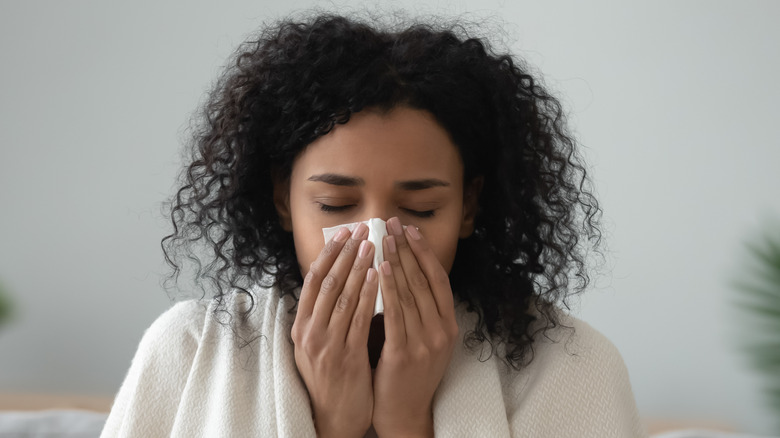Top Tips For Staving Off The Cold And Flu According To Experts
Flu and cold are respiratory infections, according to Mayo Clinic. Both are contagious and spread easily through close contact with other people, by touching infected surfaces, or via cough and sneeze droplets. Flu is caused by influenza viruses, whereas the common cold most often occurs because of rhinoviruses. Symptoms are normally mild but in some cases, flu can lead to death.
Mostly, flu occurs during autumn and winter. According to the Centers for Disease Control and Prevention (CDC), although flu can attack at any time of the year, significant activity usually begins in October and can last till May in the United States. The peak months are often December through February. Meanwhile, colds are more prevalent during winter and spring, notes the CDC.
Healthline reports that every year, around 20% of Americans experience flu, leading to around 200,000 hospitalizations. An average American adult gets colds about 2 to 3 times every year, per CDC. These diseases get worse as you age. Additionally, if you have a chronic illness or weakened immune system, you may be at higher risk, warns Mayo Clinic.
How to avoid colds and flu
Yearly vaccination is the best primary protection against influenza before seasonal illnesses strike (via Healthline). Although it doesn't eliminate the risk of getting the flu, the chances can still be mitigated by a whopping 40 to 60%. Unfortunately, there's no vaccine for the common cold.
The next firewall against flu and colds is hygiene. Washing your hands is a useful hack to avoid these contagious infections. If you can, you may also want to stay away from people who are sick, notes Mayo Clinic.
It's also necessary to pay attention to your diet and lifestyle. Healthy foods such as citrus-rich fruits, leafy green vegetables, soups, and fiber-packed foods can help build your immunity and potentially reduce your risk of deadly illness (via Verywell Fit). You may also want to drink green tea, reduce your alcohol intake, and get enough sleep, exercise, and vitamin D, adds Healthline.


